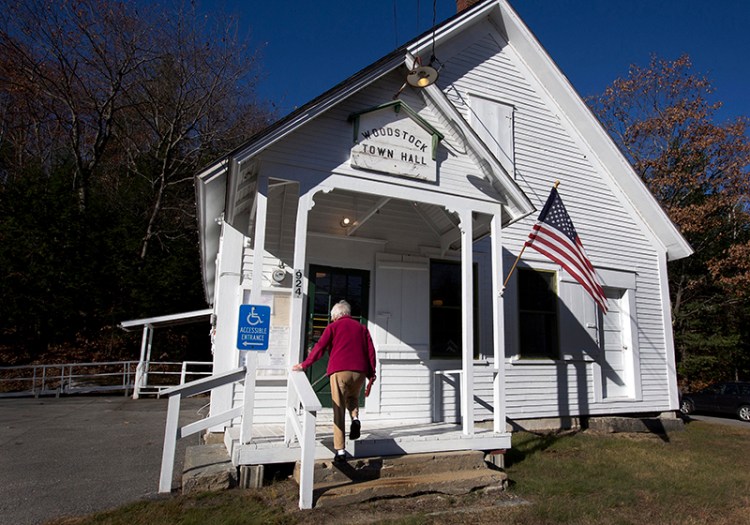House Democrats are trying to ramp up pressure to send more election security funding to states by spotlighting the ones they say are most vulnerable going into November.
A report released Thursday by House Administration Committee Democrats identified 18 states that congressional researchers say lack key voting safeguards, including paper trails for vote tallies and post-election audits. Drawing on months of input from election officials and cybersecurity experts, it called on Congress to approve $1.4 billion in new election security funding for all 50 states over the next decade.
But the report may have limited effect because, notably, no Republicans signed onto its conclusions — and building bipartisan support for new federal assistance could be difficult with less than four months to go before the midterms.
Rep. Zoe Lofgren (D-Calif.), one of the report’s authors, said the goal was to make the case for more funding while avoiding partisan politics. She noted that a previous $380 million funding package Congress approved for all 50 states earlier this year drew support from both sides of the aisle and said she hoped to replicate that effort.
“I think our report helped make clear the need in a way that was not highly political,” Lofgren told me. “What we’re really trying to do is make this fact-centered and not be negative about any group of people or state.”
Committee Republicans didn’t immediately respond to messages seeking comment on the report Thursday. And some experts said the report could still come across as a partisan effort, which could blunt its impact. “As well-intentioned as reports like these are, when it’s on behalf of only one party it can be perceived as an attempt to score political points,” said David Becker, executive director of the Center for Election Innovation and Research.
“It’s imperative that we respond to this very real threat in a way that transcends party lines,” he continued. “When it looks like either side is making this a partisan issue, they could ultimately reduce the chance that we’ll find an effective solution.”
The report’s authors grouped states into three “tiers” based on the types of vulnerabilities they identified. Here’s how committee Democrats broke it down:
Tier 1: Delaware, Georgia, Louisiana, South Carolina and New Jersey were identified as the most vulnerable because they relied exclusively on voting machines that don’t produce an auditable paper record.
Tier 2: Arizona, Florida, Illinois, Indiana, Kansas, New Hampshire, Tennessee, Texas and Wisconsin “may not be planning on using federal assistance to address their biggest vulnerabilities,” which included a lack of post-election auditing and the use of paperless voting machines in some jurisdictions.
Tier 3: Arkansas, Iowa, Pennsylvania and Washington had some of the same vulnerabilities as “Tier 2” but were putting money toward fixing them.
https://cloudup.com/ckg4rFzDIro
The report listed recommendations for what each state should do to fix its vulnerabilities, and said that all the states needed additional financial assistance to make upgrades.
The findings reflect many conclusions from independent think tanks and cybersecurity professionals about how to protect the voting process, from stepping up cybersecurity training to implementing paper ballot systems. And the request for $1.4 billion in new funding draws from estimates by the nonpartisan Brennan Center on how much it would cost to replace outdated digital voting machines in the 13 states that still use them.
Yet getting new election security funding has been a struggle in the approximately four months since Congress approved the $380 million infusion for states — an amount that a broad array of election officials and experts say is not enough to fully defend against election cyber threats from Russia and other sophisticated actors. Late last month, Senate Democrats on the Appropriations Committee tried to tack $250 million in additional funds onto an appropriations bill, but the measure failed in a party-line vote. Similar attempts in the House have been unsuccessful.
But even if funding doesn’t end up on the table by the midterms, there are some bright spots emerging on bipartisan efforts on election security in Congress. The Secure Elections Act, which aims to help states and the federal government share information about election cyber threats, is garnering broad bipartisan support in the Senate and is sponsored by Sens. Amy Klobuchar (D-Minn.) and James Lankford (R-Okla.). And members of the Senate Intelligence Committee investigating Russian election interference haven’t experienced the same partisan squabbles as their counterparts in the House, Becker noted.
“There are models of bipartisan cooperation on election cybersecurity issues,” Becker told me. “Many are working overtime with their colleagues on the other side of the aisle to build bipartisan consensus towards solutions.”
Send questions/comments to the editors.



Comments are no longer available on this story